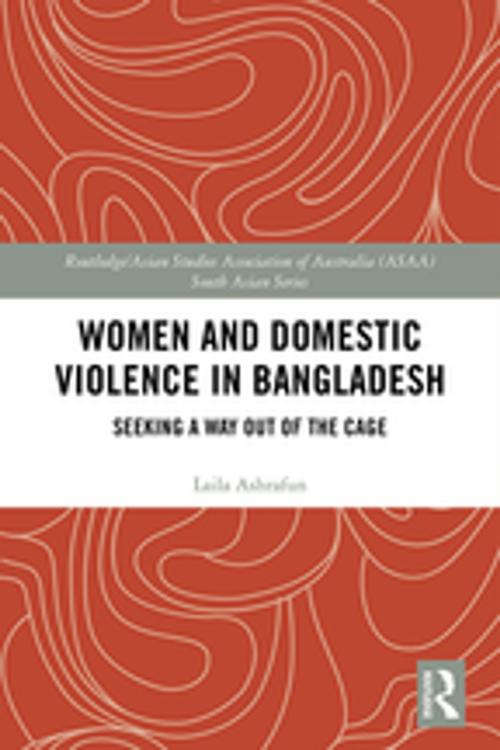Women and Domestic Violence in Bangladesh
Seeking A Way Out of the Cage
Nonfiction, Social & Cultural Studies, Social Science, Cultural Studies, Ethnic Studies| Author: | Laila Ashrafun | ISBN: | 9781351256629 |
| Publisher: | Taylor and Francis | Publication: | April 17, 2018 |
| Imprint: | Routledge | Language: | English |
| Author: | Laila Ashrafun |
| ISBN: | 9781351256629 |
| Publisher: | Taylor and Francis |
| Publication: | April 17, 2018 |
| Imprint: | Routledge |
| Language: | English |
After the independence of Bangladesh in 1971, the country has experienced large-scale transformations owing to national and international migration, urbanization, the development of many national and international non-governmental organizations (NGOs) and economic dynamism. Globalization and economic liberalization have created opportunities to develop sustainable social policies by strengthening the national economy of the country. Major progress has been made in closing the gender gap, and the Constitution of Bangladesh provides equality of status and opportunity to all its citizens irrespective of sex. However, domestic violence perpetuated against women is a common phenomenon in Bangladesh.
This book is a study about domestic violence against women in Bangladeshi society. It delineates, in particular, why and how some women become the victims of domestic violence in the changing socio-economic setting of Bangladesh. The author explores the multiple contexts in which domestic violence occurs by focusing on the everyday experience of women subjected to this violence. The book shows how changing socio-economic setting, urbanization and the growing demand for female labor influences the phenomenon and experience of domestic violence. It demonstrates that domestic violence is entangled in a complex web of institutionalized social relations that necessitates a structural and contextual understanding of the production of such violence in family, kinship and gender relations. Finally, it identifies factors that cause, perpetuate, and mitigate domestic violence or give strength to women to struggle and raise their voices or take shelter in the law against the perpetrators of domestic violence.
A novel contribution to our understanding of how gender relationships are differently constituted and contested in the everyday lives of Bangladeshi women, both in natal and affinal families, this book will be of interest to academics in the field of Sociology, Gender and Law and South Asian Studies.
After the independence of Bangladesh in 1971, the country has experienced large-scale transformations owing to national and international migration, urbanization, the development of many national and international non-governmental organizations (NGOs) and economic dynamism. Globalization and economic liberalization have created opportunities to develop sustainable social policies by strengthening the national economy of the country. Major progress has been made in closing the gender gap, and the Constitution of Bangladesh provides equality of status and opportunity to all its citizens irrespective of sex. However, domestic violence perpetuated against women is a common phenomenon in Bangladesh.
This book is a study about domestic violence against women in Bangladeshi society. It delineates, in particular, why and how some women become the victims of domestic violence in the changing socio-economic setting of Bangladesh. The author explores the multiple contexts in which domestic violence occurs by focusing on the everyday experience of women subjected to this violence. The book shows how changing socio-economic setting, urbanization and the growing demand for female labor influences the phenomenon and experience of domestic violence. It demonstrates that domestic violence is entangled in a complex web of institutionalized social relations that necessitates a structural and contextual understanding of the production of such violence in family, kinship and gender relations. Finally, it identifies factors that cause, perpetuate, and mitigate domestic violence or give strength to women to struggle and raise their voices or take shelter in the law against the perpetrators of domestic violence.
A novel contribution to our understanding of how gender relationships are differently constituted and contested in the everyday lives of Bangladeshi women, both in natal and affinal families, this book will be of interest to academics in the field of Sociology, Gender and Law and South Asian Studies.















